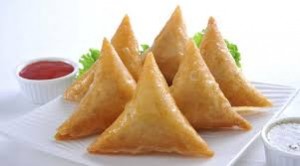Salaams Sisters
Once again the blessed month of Ramadhan is with us, it’s a month where one learns to exercise self control (sabr), its not only abstaining from food and drink but we need to control our other senses too. For many of us Ramadhan has lost its spirituality and has become a ritual than a form of Ibadah.
Mothers and wives are stocking up their freezers with samosas, spring rolls etc. weeks and in some cases months in advance. Why? They run to the shops the local supermarkets for the ‘ Ramadhan sale’ for their excessive amounts of sugar, bags of rice, chapatti flour, their cooking oils, besan flour, Birds trifle and Jellies why? Is there going to be a shortage, are we going to experience famine, are we not going to survive this month?
For some the whole month of Ramadhan revolves around food, we spend more time planning, preparing and shopping for food when we should be concentrating on praying our salahs and reading the Quran. It is also a month when we overspend I’m not talking about giving to charity, I am saying we spend too much money on food and drink. We over indulge ourselves, come iftari time we spread our tables or carpets with so much variety : fried foods, desserts, faloodahs etc. its like we deserve it our reward for going without food for the whole day. It is also the month in which we prepare so much food that we waste a lot of it. I don’t know about you but I look forward to this blessed month cutting down on the eating and looking after oneself losing a few pounds and hopefully maintaining the loss.
Why can’t we stick to eating simple nutritious home cooked meals and fresh fruits that we normally eat on an everyday basis. Why do we get all extravagant when it comes to iftari time, who are we impressing, the family, neighbours or friends. Spare a thought for our sisters and brothers who live in poverty or war torn countries who don’t have such luxuries that we in Britain have. In fact shouldn’t we be giving a little more zakat /sadaqa for them in the holy month.
The eating and drinking does not end, we then in the last week of Ramadhan start preparing our Eid food mainly sweets. My mother who came from a poor village in Gujarat tells me in her days they didn’t have such a wide variety of foods or choice of foods to eat, it was rice and or vegetable curry virtually every day. Dessert was a small saucer of custard that they ate with a chapatti. Samosas and meat Biryani were so special that they were eaten only on Eid day.
Fasting on the “physical” level causes the fasting person to experience the pangs of hunger and thirst – when the prophetic (Sunnah) way of fasting is observed.
Prophet Muhammad (peace be upon him) used to consume a very light meal before the dawn (suhur) and moderate meal (iftar) to break the fast at sunset, while scrupulously avoiding filling his stomach.
He is reported to have said, “The worst container a human being can fill is his stomach. A few morsels of food to keep a person’s back straight are sufficient.
However, if his desire overcomes him, then let him eat a third, drink a third and leave a third for breathing.” [6]
The Prophet (peace be upon him) used to break his fast with a few fresh or dried dates and a glass of water just before beginning the sunset prayer. [7]
This level allows the fasting person to experience the pangs of hunger and thirst and thereby develops sympathy in him or her for those starving and dying of thirst in other parts of the world.
Ramadhan is a month of reflection and prayer. Come on ladies stop worrying so much about food, don’t make this the norm.

